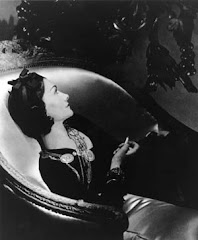
A group of Jewish schoolgirls in London boycotted an examination requiring them to answer questions on Shakespeare, whom they believed, based on the portrayal of Shylock in Merchant of Venice, was anti-semitic.
Addressing this charge in the Telegraph, Daniel Hannan dismisses the accusation, thus:
No, of course he wasn’t. His universalism, his grandeur, the wholeness of his understanding, makes such questions meaningless. Shakespeare cannot be confined by any set of beliefs: his genius always bursts out, putting both sides of a case far more eloquently than any other advocate. When you try and conscript him to a narrow cause, you make yourself look narrow. Shakespeare’s canon will broaden your experience more than your experience can ever broaden it.But argues that Shylock has been, perhaps, the greatest source of trouble for the Jews:
. . . on balance, I’m with the pupils at Yesodey Hatorah Senior Girls School. Shylock, precisely because of the depth of his character, precisely because his motives are made comprehensible, is the most dangerous archetype of the malevolent Jew ever created. He’s not just a nasty piece of work; he possesses the character traits that anti-Semites have projected onto Jews down the ages. He is greedy, legalistic, clever and lacking in compassion: a schemer who secretly loathes the Christians he lends money to.
I feel awkward every time I watch the play, as many gentiles do. I can only imagine how much more uneasy I would feel if I were Jewish. Harold Bloom, perhaps the most dedicated Shakespearean of our age, is beguiled by the play, and by the ambiguities of Shylock in particular; yet he well recognises how much it has worsened the lot of European Jewry. “Shakespeare’s persuasiveness has its unfortunate aspects; The Merchant of Venice may have been more of an incitement to anti-Semitism than The Protocols of the Elders of Zion, though less than the Gospel of John. We pay a price for what we gain from Shakespeare”.
And this seems to be the nub of a contemporary problem: that great, not narrow minds, can take positions of high moral grandeur, dismissive of the consequences for others.
